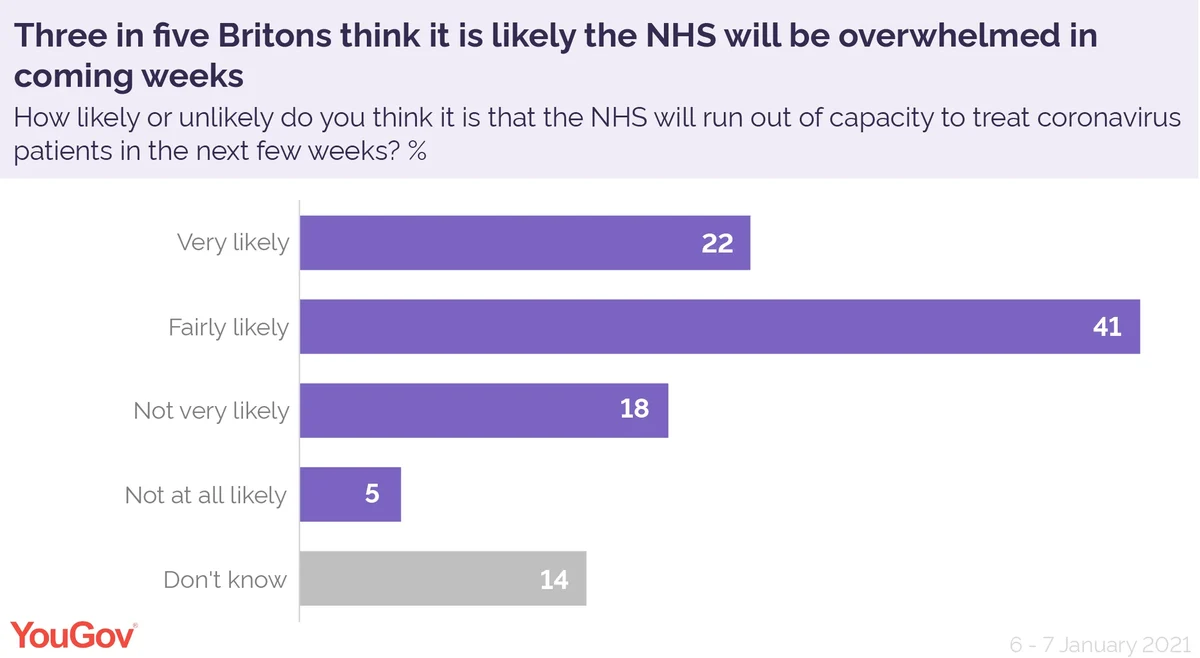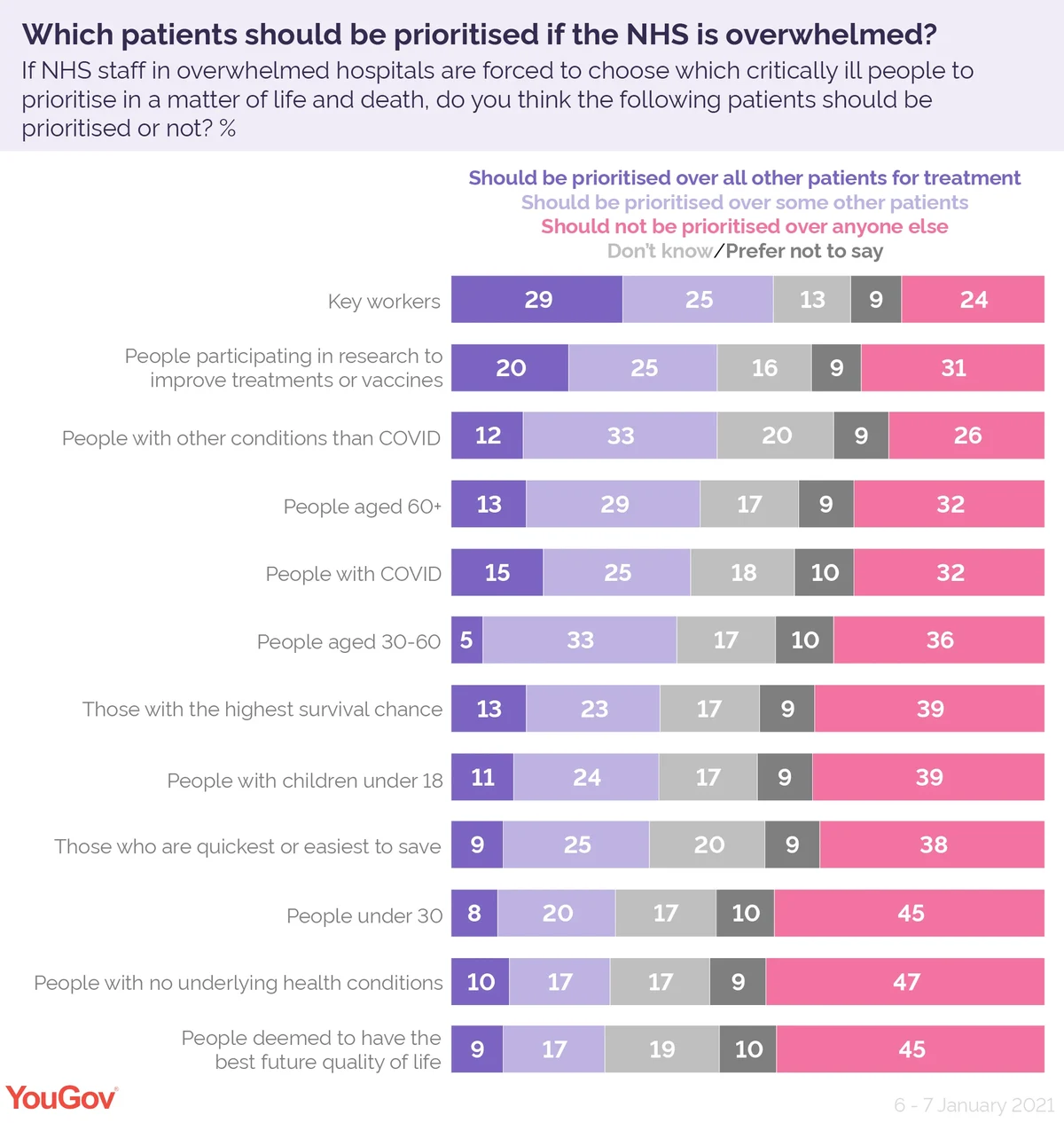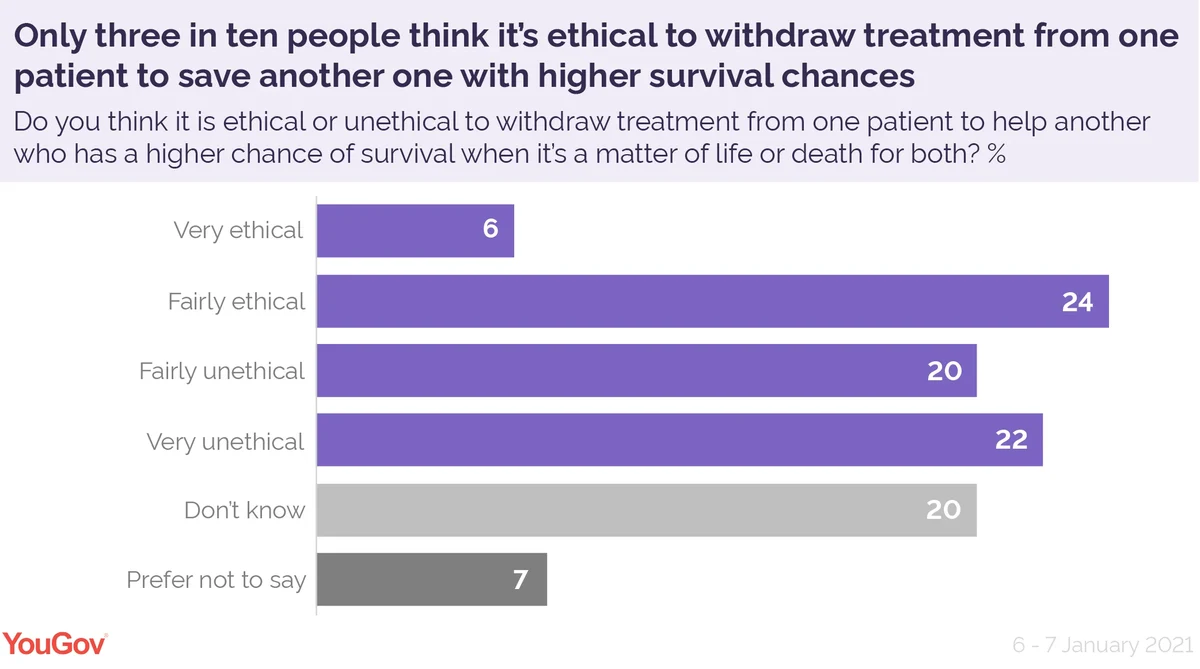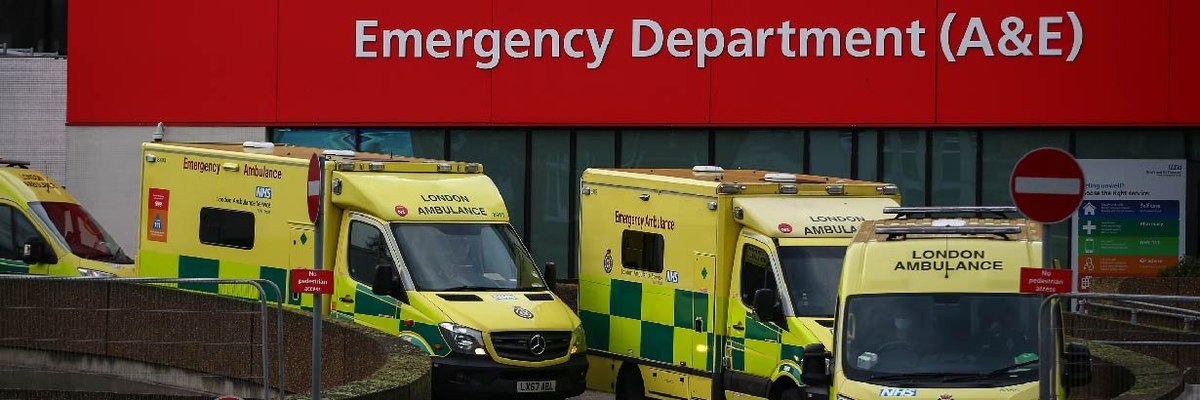One in five think it is “very likely”
An official briefing warned on Wednesday that London hospitals are less than two weeks away from becoming overwhelmed by COVID-19 in a best-case scenario. New YouGov data shows that a majority of the public (63%) similarly believe it is either very (22%) or fairly (41%) likely that hospitals run out of capacity in weeks.
Less than a quarter of Britons believe it’s not very (18%) or not at all (5%) likely.

That the NHS is likely weeks away from being overwhelmed is a view held by a majority in all social and voting groups.
Prioritise key workers if hospitals run out capacity, say Britons
In the absence of national guidelines for how doctors should prioritise patients in overwhelmed hospitals, specialists at a major NHS trust have created a draft emergency protocol. It states that some specialists believe that being a key worker or participating in vaccine research should be taken into account. YouGov put that prioritisation policy to the public to see how far they agree.
If doctors are put in a position where they are forced to choose which critically ill patients to prioritise, most people said they should put key workers first among the categories we asked about. One in three people (29%) say they should be prioritised above any other group, while another quarter (25%) say they should receive help before some other patients.
Over two in five Britons similarly say that people who participate in research to improve treatments or vaccines should either be a top priority (20%) or come before some other groups (25%).

The protocol says that patients with COVID and other conditions should be treated equally. More than two in five people (45%) believe that patients with other conditions than COVID should be the highest priority (12%) or they should receive help before some other groups (33%).
A slightly smaller proportion (40%) say doctors should help coronavirus patients before anyone else (15%) or before some other patients (25%).
The guidance also states that a patient’s age alone should not determine their priority but that doctors should aim to save as many lives and years of life as possible. In fact, Britons are more likely to deem people aged 60 or older either a top (13%) or higher (29%) priority than those aged 30 to 60 (5% top priority / 30% higher priority) or people under 30 (8% top priority / 20% higher priority).
Among the 12 categories included in the survey, patients with the highest chance of survival rank seventh, with 13% putting them first while a quarter (23%) would treat them before some other people.
Meanwhile, those who are quickest or easiest to save – meaning they would allow doctors to save the most lives - rank ninth. One in eleven people (9%) say they should receive treatment first, while a quarter (25%) say they be prioritised over some other patients.
By 42% to 30%, Britons say it would be unethical to withdraw treatment from one person to help another with a higher chance of survival
The emergency protocol states that removing a patient from a ventilator or ICU bed to provide it to others in need may be ethically justifiable, although the authors admit that it requires a legal opinion. However, only three in ten people (30%) agree that withdrawing treatment from one patient to help another with higher survival chances is very (6%) or fairly (24%) ethical,
In contrast, two in five Britons say it’s either very (22%) or fairly (20%) unethical. Another fifth are uncertain (20%), while 7% don’t feel comfortable expressing an opinion.











